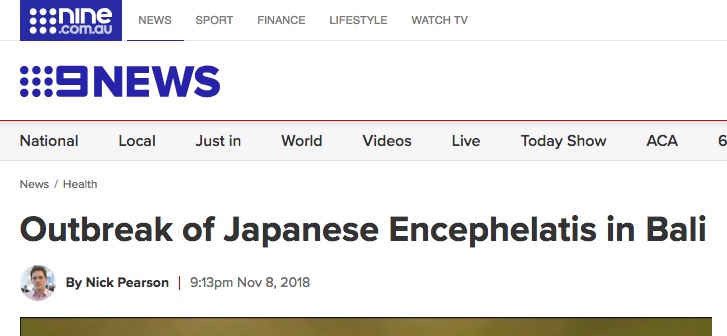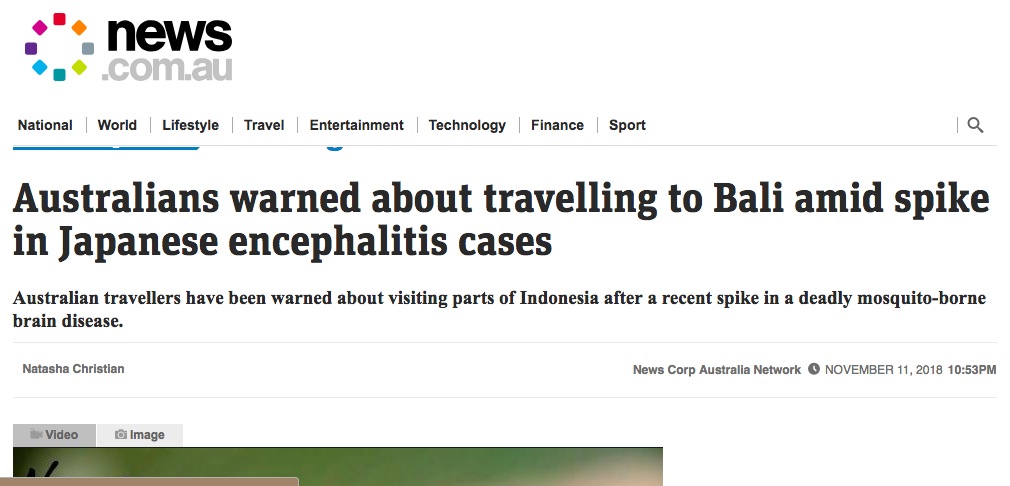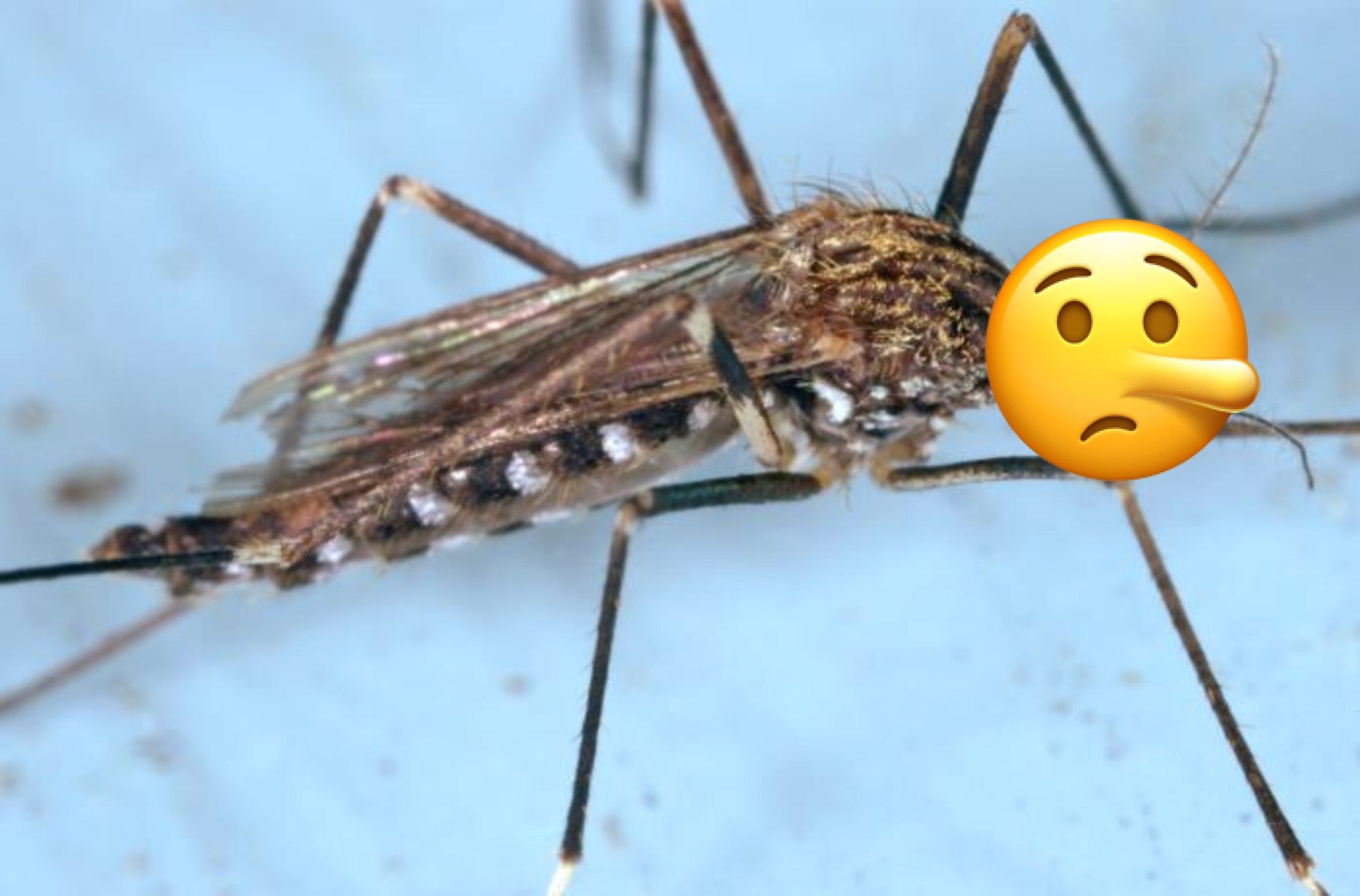Mainstream Australian media outlets have been called out by the Bali Provincial government for spreading fake news about an outbreak of Japanese Encephalitis on the Indonesian island.
Outlets like News Corp Australia and the 9News Network issued breaking news reports last week warning Australians about an “outbreak” of the dangerous mosquito-borne virus.
But there’s no outbreak on the island, these reports are “fake news”, says head of the Bali Provincial Health Office, Dr. Suarjaya.
Bali Province has even issued a circular, condemning the fake news and confirming that Bali does not have an outbreak of JE.


“It’s not true that there’s a JE outbreak in Bali. Until now there have not been any cases of of JE. In 2018, there was only one case of JE in January and it was treated, there was no death,” Suarjaya told Bali Post on Saturday.
What seemed to have launched this barrage of inaccurate reporting was a statement by Ministry of Health Director of Surveillance and Quarantine, Vensya Sitohang, who said last week on Tuesday that Indonesia was “monitoring” Bali and Manado, Indonesia’s two locations with the most cases of JE. Sitohang discussed how Bali had things under control with an immunization program that focused on vaccinating kids aged nine months to 15 years old, who are most susceptible to the infection. Sitohang, however, said nothing about an “outbreak.”
Dispelling the fake outbreak news over the weekend, Suarjaya, referenced the immunization program, which was carried out in April 2018, reaching some 962,000 children.
“We continue to make prevention efforts, because JE immunization has become a routine vaccination now for children aged nine months. All children aged nine months, along with measles, are immunized against JE,” Suarjaya said.
JE is a viral brain infection that is most commonly transmitted to humans through mosquitoes, but animals like birds, bats, cows, and pigs can act as reservoirs.
Rare but severe effects of the viral infection can include blindness, ataxia, weakness, movement disorders, and death in 20-30 percent of cases. Symptoms like headache, fever, and convulsions usually take five to 15 days to present themselves.





Reader Interactions